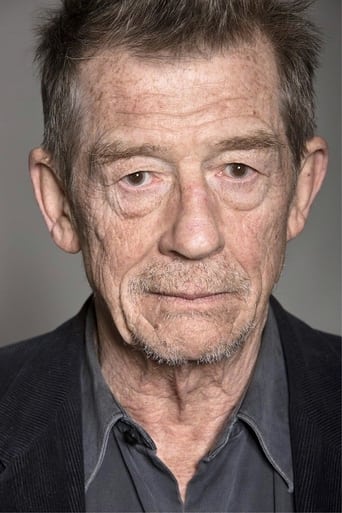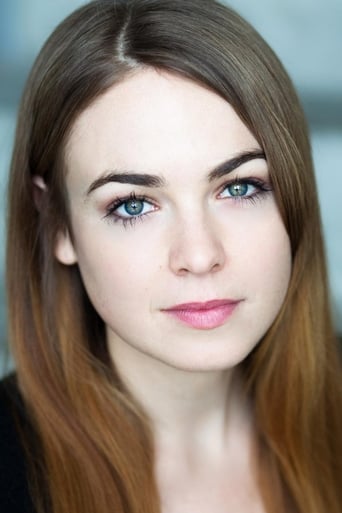Maidgethma
Wonderfully offbeat film!
Bardlerx
Strictly average movie
SparkMore
n my opinion it was a great movie with some interesting elements, even though having some plot holes and the ending probably was just too messy and crammed together, but still fun to watch and not your casual movie that is similar to all other ones.
Roman Sampson
One of the most extraordinary films you will see this year. Take that as you want.
BRCanberra
I think the film had a reasonably balanced set of messages with enough curly tidbits to take a few elements away and dissect over a coffee or two with friends. I found the portrayal of a struggling family group seemed very plausible and I especially loved the imagery and memories of a coastal sugar-cane town captured for the backdrop. In a couple of the scenes I'm not entirely convinced by Ms Barclay's performance as Lou's mother, but the rather poignant scene of the 4 "young" girls together on the beach towards the ending gels with one of the aspects that all of them (including Rhia) are still growing up together. Some nicely placed humour underpins parts of the character development and overall it seems a good plate of mind-food with hooks for many embattled parents. I agree with another reviewer that John Hurt's performance was great, he didn't overdo the illness symptoms to make Doyle too cheesy to be believed, and the audience at my session delighted in many of the childhood antics portrayed by the younger actors. Definitely good work by Lily-Bell Tindley as the memorable Lou.
brimon28
This is one very 'different' film. The pre-publicity prepares one for a tough hour-and-a-bit. It starts slow, and one wonders whether the story can be told in the short time left. We have a family, short of a dad, living on the border of Queensland and New South Wales. It's sugarcane country, backed by Mount Warning, the conspicuous mountain named by James Cook in 1770. The family is poor economically, but strong in spirit. We are introduced to the three girls, eldest 12, early in a line-up. This line-up is repeated from time to time and at the finish of the film. The girls are obedient, which makes them, perhaps, less than normal. But mother preserves the family's functionality with discipline against great odds. The odds seem greatest when the family is stuck with the grandfather, suffering with Alzheimers. It is obvious that Lou, the eldest girl, is to be the leader in the drama, and Doyle, the declining elder, is her foil. Does this work? Well, there's an old stage rule: never appear with children or dogs. The children win hands down with the mother appearing to be helpless. Doyle finishes up happy, and Lou, resilient in her youth, recovers from her disappointment. The cinematography is lovely, with rock-steady camera work, but not relying too heavily on the magnificent landscape of the Tweed Valley. Yes, a filmmaker can tell a story in under an hour-and-a-half!
greguki
This is an Australian film of great depth. The simplicity can be deceptive but like all great writing the trick is to say enough without saying too much. The combination of the writing and the acting synergistically magnifies the impact of what could seem to those on a steady diet of blockbusters a slow film. On an obviously tight budget sometimes so much can be delivered. By relying on good acting,writing, direction an impact can be had which exceeds that of the 100 million dollar epic. In digging deeper, director Belinda Chayko calls us as an audience to also give more. This is a giving which is rewarded. after watching the film last night, the questions were still rattling away the next day as I write this. John Hurt really is fabulous as Doyle, while Lilly Bell-Tindlay is in danger of stealing the show. If you like beautiful images, you are in for a treat as the Tweed Valley is shown to it's best advantage. While I know that this will not be the sort of movie for everyone, I do know that it left my life just a bit richer.
gregking4
Another fairly grim and down beat Australian drama about a dysfunctional family, that is becoming a staple of local filmmakers. However, Lou is leavened with touches of humour and boasts some excellent performances that lift it. Lou stars John Hurt (The Elephant Man, etc) and Emily Barclay (best remembered for her AFI award winning role as the troubled protagonist of Suburban Mayhem). Barclay plays Rhia, a young mother of three girls who is struggling to make ends meet. She has an especially difficult relationship with her eldest daughter, the precocious eleven year old Louisa (played by newcomer Lucy bell-Tindley), who blames Rhia for driving her father away. With a credit company threatening to take away their possessions due to her failure to pay her bills, Rhia reluctantly to take in the girls' grandfather Doyle (Hurt) and claim the meagre carer's payment. But Doyle suffers from Alzheimer's Disease, and caring for him is not always easy. At first Louisa is resentful of his presence, especially since the muddled old man refers to her as Annie, the name of his former wife. Louisa is also busy caring for her two younger sisters while Rhia is at work or having trouble coping with the disappointments of her own life. But slowly a bond develops between the two, and a strong but strange relationship develops between the pair. Written and directed by Belinda Chayko (who worked as an editor on the TV series Fireflies), the film delivers a solid emotional journey as it probes this dysfunctional family. But the film suffers a little from under developed scripting and characterisation. It also lacks a clear focus – who are we supposed to identify with and care for here? Is it the troubled Louisa, Rhia, or the confused Doyle? Chayko directs the claustrophobic and combustible environment with a deal of empathy, and she drags solid performances from her small cast. Barclay brings grit and a sense of desperation to her performance. Hurt is very good and sympathetic, and he deftly avoids the easy mannerisms that could have turned his performances into a cliché. But the standout performance comes from Bell-Tindley, who is a revelation, and plays her role with assurance and maturity beyond her tender years. Cinematographer Hugh Miller also beautifully captures the film's setting, the cane fields of rural northern New South Wales and offers up some beautiful imagery that resonates beyond the kitchen sink drama. Nonetheless, there is an element of familiarity about much of the drama unfolding


